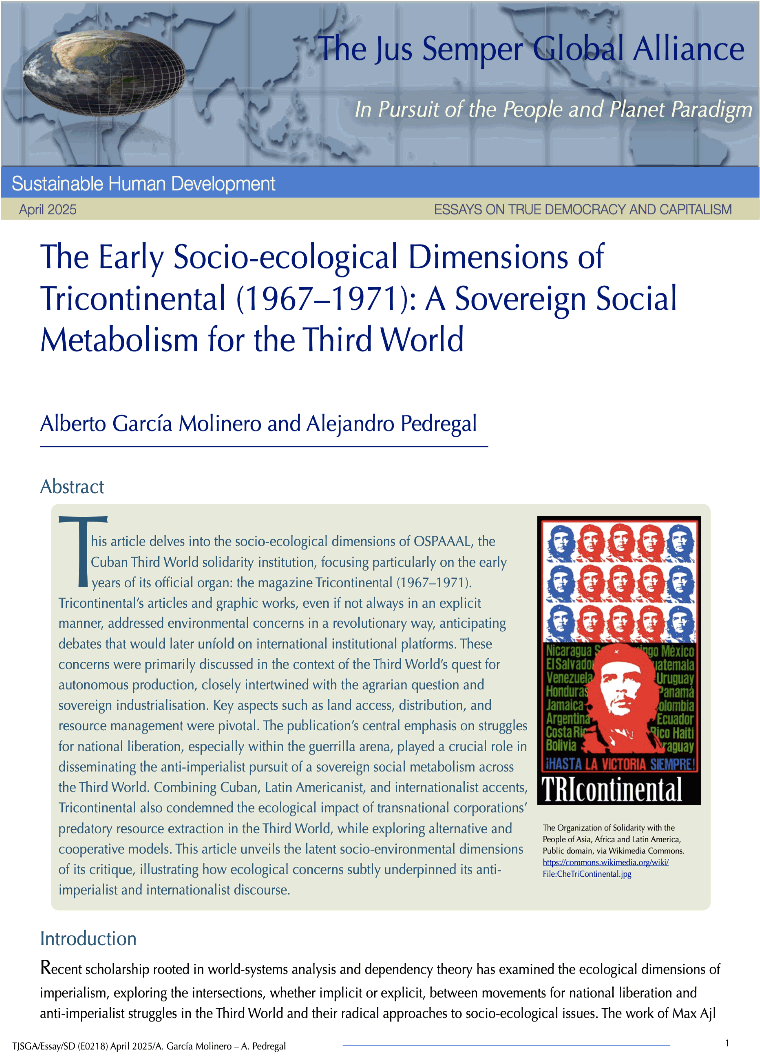The Early Socio-ecological Dimensions of Tricontinental (1967–1971): A Sovereign Social Metabolism for the Third World
Alberto García Molinero and Alejandro Pedregal
This article delves into the socio-ecological dimensions of OSPAAAL, the Cuban Third World solidarity institution, focusing particularly on the early years of its official organ: the magazine Tricontinental (1967–1971). Tricontinental’s articles and graphic works, even if not always in an explicit manner, addressed environmental concerns in a revolutionary way, anticipating debates that would later unfold on international institutional platforms. These concerns were primarily discussed in the context of the Third World’s quest for autonomous production, closely intertwined with the agrarian question and sovereign industrialisation. Key aspects such as land access, distribution, and resource management were pivotal. The publication’s central emphasis on struggles for national liberation, especially within the guerrilla arena, played a crucial role in disseminating the anti-imperialist pursuit of a sovereign social metabolism across the Third World. Combining Cuban, Latin Americanist, and internationalist accents, Tricontinental also condemned the ecological impact of transnational corporations’ predatory resource extraction in the Third World, while exploring alternative andcooperative models. This article unveils the latent socio-environmental dimensionsof its critique, illustrating how ecological concerns subtly underpinned its anti-imperialist and internationalist discourse. For a full read of this brief, click here or on the picture to download the pdf file. |






